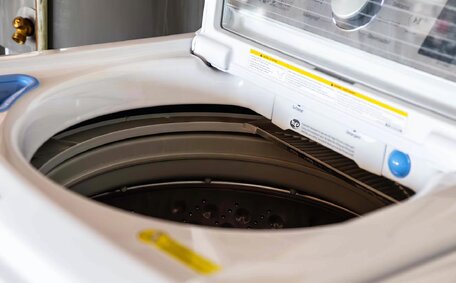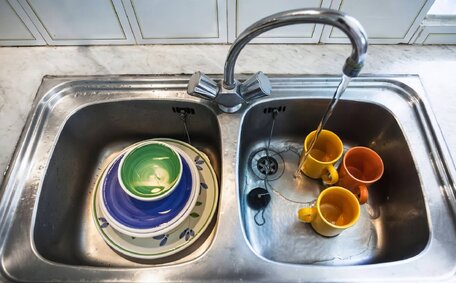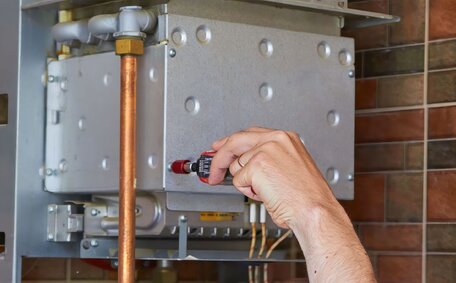What causes hair clogs in drains?
Hair is one of the most common causes of clogged drains. On average, a person sheds between 50-100 strands of hair per day. All this hair that is washed down our drains can accumulate over time and cause problematic clogs.
When hair washes down the drain, it often gets coated with soap residue, oils, and product buildup. This causes the hair strands to stick together and form knots that eventually block the pipe. Shower and sink drains are especially prone to hair clogs as they accumulate hair from daily grooming routines.
Several factors can contribute to hair clogs:
- Long hair - The longer the hair, the more that sheds and washes down.
- Oily hair - Naturally oily hair is stickier and more likely to clung to drains.
- Frequent hair washing - The more often hair is washed, the more hair goes down the drain.
- Shedding - During certain seasons or life stages, shedding increases.
- Hair treatments - Products like conditioners and masks cause buildup.
As hair collects in drains over time, it winds tightly together until it completely blocks water flow. Dealing with a hair clog requires removing the blockage mechanically or with drain chemicals. To prevent future hair clogs, using drain screens and regular drain maintenance is key.
Signs you have a hair clog
There are several telltale signs that point to a hair clog in your drain:
- Water drains slower than usual and gurgles as it goes down.
- The drain completely stops up, with water pooling in the sink or tub.
- You have to plunge the drain frequently to keep water flowing.
- Unpleasant odours come from the drain, even when well-maintained.
- You can see hair tangled at the drain opening or hooked around the stopper.
- Clogs keep recurring shortly after using drain cleaners or removing hair manually.
If you notice your drain slowing and hear gurgling sounds, it likely means hair and grime is accumulating. Pooling water, bad smells, and visible hair clumps are sure signs a hair clog is present and needs to be cleared.
Frequent plunging and recurring clogs after cleaning also indicate a hair blockage. Getting to the root of the problem requires removing the hair from your pipes.
Preventing hair clogs
Preventing hair clogs requires some diligence, but a few simple habits can keep your drains free-flowing:
- Install drain screens - Using hair catchers or drain screens keeps excess hair from entering pipes.
- Brush before showering - Thoroughly brushing hair before getting in the shower reduces the amount that sheds down the drain.
- Regular maintenance - Monthly, use baking soda and vinegar to help clear built-up gunk. Yearly, have drains professionally cleaned.
- Limit hair products - Reduce product buildup by using only what’s needed when conditioning.
- Collect hair - After brushing or showering, collect excess hair and dispose of it rather than rinsing down the drain.
Making hair clog prevention part of your routine is crucial. Sticking to these best practises will keep hair from accumulating and blocking your drains over time.
Removing hair clogs
If you have a minor hair clog, there are several DIY methods you can try before calling a plumber:
- Use a drain snake/auger - Carefully insert the end into the drain and twist to hook and pull out hair.
- Try a plunger - Plunging can help dislodge hair obstructions.
- Boil water - Pour a kettle of boiling water down the drain to melt oils and grease trapping hair.
- Baking soda and vinegar - Mix 1 cup baking soda with 1 cup vinegar and pour down the drain, wait 10 mins then rinse with hot water.
- Use a wire coat hanger - Bend the end into a small hook to fish out hair clogs.
For severe clogs that persist, using a professional drain auger or calling a plumber is best. They have the specialised tools and expertise to fully clear blockages and remove all hair from your pipes.
When to call a professional plumber
DIY methods can work for minor hair clogs, but there comes a point where calling in the experts is the best solution. Contacting professional plumbers is advisable when:
- You’ve tried all the at-home remedies with no success
- The clog is deep in the pipes and you can’t reach it
- Clogs recur frequently and quickly despite your efforts
- You have a main sewer line clog impacting the whole house
- Multiple drains are blocked throughout your home
- Your plumbing fixtures have water pooling or leaking
- You have no hot water due to issues like a faulty heater or leaky pipes
Our licenced plumbers at Parramatta Plumbing have the specialised equipment, methods and experience to resolve even severe hair clogs. We can inspect your drains, locate clogs and clear blockages thoroughly. Our services include:
- Hydro jet drain cleaning
- High-pressure water drain jetting
- Mechanical drain augering and cabling
- Sewer video inspections
- Trenchless sewer line repair
- Hot water system repair and replacement
Don’t spend hours struggling with recurring clogs - our experts can solve the problem quickly and completely. Contact Parramatta Plumbing to book an appointment for professional drain cleaning services. Our friendly team is ready to get your plumbing back in order.






